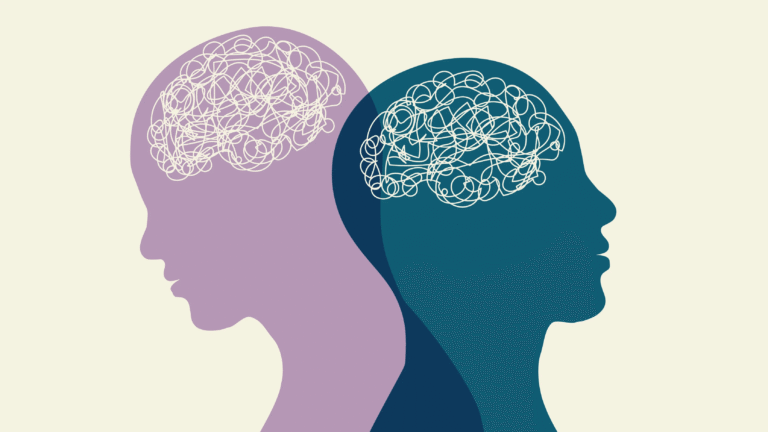Chronic illness affects millions of Americans, impacting their physical health, emotional well-being, and overall quality of life. The unfortunate truth is that chronic illnesses are on the rise. Of the population 50 years and older, the number with at least one chronic disease is estimated to increase by 99.5% from 71.522 million in 2020 to 142.66 million by 2050.
On the bright side, medicine, health awareness, and mental health support are improving. However, in states like New York, California, and Vermont, the health indicators are very positive; people studying for degrees like online MSW programs in New York, California or Vermont or working in mental health and social work fields will understand the importance of managing chronic conditions effectively.
Understanding the Condition
Understanding your condition is a good step toward effective management of a chronic illness. Getting some insight into the nature of your condition—its symptoms, triggers, and treatment options have been shown to empower people to take on a more active role in their own care.
This empowerment leads to better decision-making and, overall, a greater sense of control. The more information you have, the better you can make informed choices about treatment or changes. Changes like lifestyle adjustments, medications, and therapies can help you navigate daily challenges more effectively. Recognizing and understanding your condition improves acceptance, which is not about resignation but about acknowledging your reality and finding ways to adapt to it. At the end of the day, taking time to learn a little about your chronic illness is not just about acquiring facts; it is about reclaiming agency over your health journey.
Emotional Support
To support someone with a chronic illness, it is important to show real care and understanding by listening to their struggles. The art of active listening should not be underrated and can be applied in so many life situations. Just being there for others to offer comfort when they need it is often enough.
Make a real effort to learn about their illness, including its symptoms and treatments, so you can better hell. Try to avoid making assumptions about what people suffering can or can’t do, and don’t dismiss their feelings with overly positive statements. Instead, acknowledge their emotions and let them know it’s okay to feel that way. Stay connected by checking in regularly through calls, messages, or visits, and let them know they are not alone.
If you have a chronic illness, understanding your condition can help you manage it better. Learn about your illness, including its symptoms and treatments, so you can make informed choices about your care. Try not to be too hard on yourself for what you can’t do, and be honest about your feelings without trying to be overly positive all the time. It’s okay to feel upset or frustrated. Stay connected with friends and family, and let them know how they can support you. Remember, you’re not alone, and seeking help when you need it is a sign of strength.
Stress Reduction Techniques
The more we study stress, the worse it gets; over time, the adrenaline released when we are in a stressed state damages the heart, among other things. There a many tried and tested techniques to mitigate stress. Guided imagery is a helpful stress reduction technique for people with chronic illness. Imagine yourself in a peaceful place, like a beach or a serene forest, and focus on sensory experiences—what you see, hear, smell, and feel. This can be done with a recording or on your own.
Meditation offers good short-term relief and long-term stress management benefits. You can explore different types of meditation. Try mindfulness or mantra-based meditation to start. The old yoga technique of Progressive muscle relaxation, which involves tensing and then relaxing each muscle group in your body, helps release physical tension and promotes relaxation.
Deep breathing, where you take slow, deep breaths, activates your body’s relaxation response and is a simple yet powerful stress-relief tool. These strategies can be performed anywhere and provide immediate relief, making them especially beneficial for managing stress related to chronic illness. Choose whichever stress releaser works best for you.
Rehabilitation and Exercise
Setting exercise and strengthening goals is a good step. The sheer range of positive effects the mind and body derive from exercise is immense; studies have found clear evidence that physical exercise improves depression, anxiety, memory, learning, and the list goes on.
It doesn’t have to be incredibly strenuous exercise; it can be whatever you or whomever you are caring for can manage. Try low-impact aerobic exercises, such as walking, swimming, or stationary biking, to improve cardiovascular health without excessive stress on the body.
Strength training is beneficial and comes in a range of varieties, including core-strengthening exercises for the stomach and back muscles are great at alleviating back pain by improving posture, strength, and stability. Balance exercises, particularly for older adults or those with mobility challenges. Tai chi is incredibly popular across Asia and has proven health benefits.
Growing Past Illness
Acceptance and release are valuable tools for accepting that the past is over and cannot be changed, allowing yourself to grieve and release the pain associated with past experiences can be cathartic. Mindful living helps by focusing on the present moment and practicing mindfulness to reduce rumination about pain, past or current. Seeking professional help, such as therapy, can assist in processing trauma or pain, guiding you toward letting go and moving forward.













